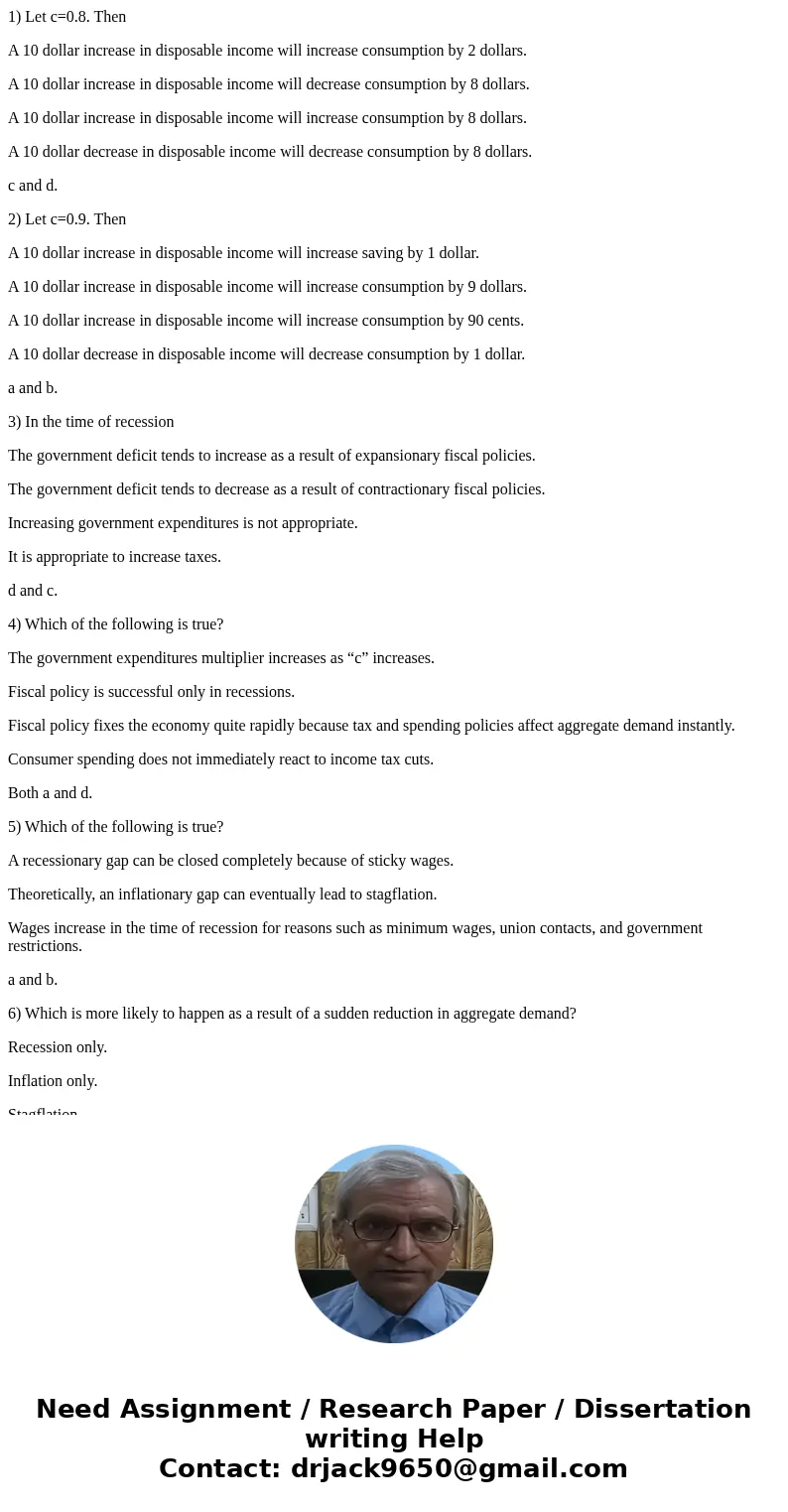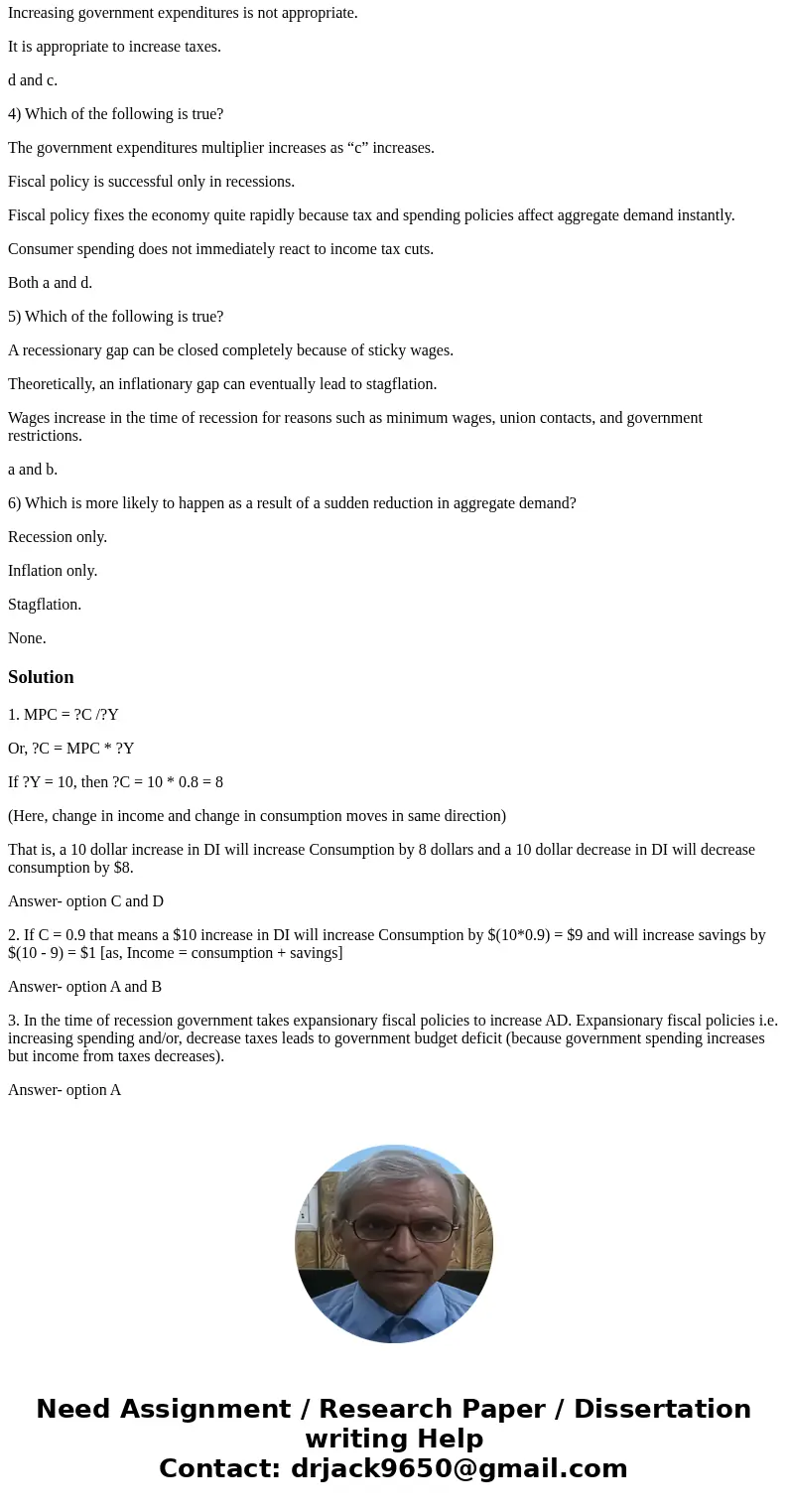1 Let c08 Then A 10 dollar increase in disposable income wil
1) Let c=0.8. Then
A 10 dollar increase in disposable income will increase consumption by 2 dollars.
A 10 dollar increase in disposable income will decrease consumption by 8 dollars.
A 10 dollar increase in disposable income will increase consumption by 8 dollars.
A 10 dollar decrease in disposable income will decrease consumption by 8 dollars.
c and d.
2) Let c=0.9. Then
A 10 dollar increase in disposable income will increase saving by 1 dollar.
A 10 dollar increase in disposable income will increase consumption by 9 dollars.
A 10 dollar increase in disposable income will increase consumption by 90 cents.
A 10 dollar decrease in disposable income will decrease consumption by 1 dollar.
a and b.
3) In the time of recession
The government deficit tends to increase as a result of expansionary fiscal policies.
The government deficit tends to decrease as a result of contractionary fiscal policies.
Increasing government expenditures is not appropriate.
It is appropriate to increase taxes.
d and c.
4) Which of the following is true?
The government expenditures multiplier increases as “c” increases.
Fiscal policy is successful only in recessions.
Fiscal policy fixes the economy quite rapidly because tax and spending policies affect aggregate demand instantly.
Consumer spending does not immediately react to income tax cuts.
Both a and d.
5) Which of the following is true?
A recessionary gap can be closed completely because of sticky wages.
Theoretically, an inflationary gap can eventually lead to stagflation.
Wages increase in the time of recession for reasons such as minimum wages, union contacts, and government restrictions.
a and b.
6) Which is more likely to happen as a result of a sudden reduction in aggregate demand?
Recession only.
Inflation only.
Stagflation.
None.
Solution
1. MPC = ?C /?Y
Or, ?C = MPC * ?Y
If ?Y = 10, then ?C = 10 * 0.8 = 8
(Here, change in income and change in consumption moves in same direction)
That is, a 10 dollar increase in DI will increase Consumption by 8 dollars and a 10 dollar decrease in DI will decrease consumption by $8.
Answer- option C and D
2. If C = 0.9 that means a $10 increase in DI will increase Consumption by $(10*0.9) = $9 and will increase savings by $(10 - 9) = $1 [as, Income = consumption + savings]
Answer- option A and B
3. In the time of recession government takes expansionary fiscal policies to increase AD. Expansionary fiscal policies i.e. increasing spending and/or, decrease taxes leads to government budget deficit (because government spending increases but income from taxes decreases).
Answer- option A


 Homework Sourse
Homework Sourse